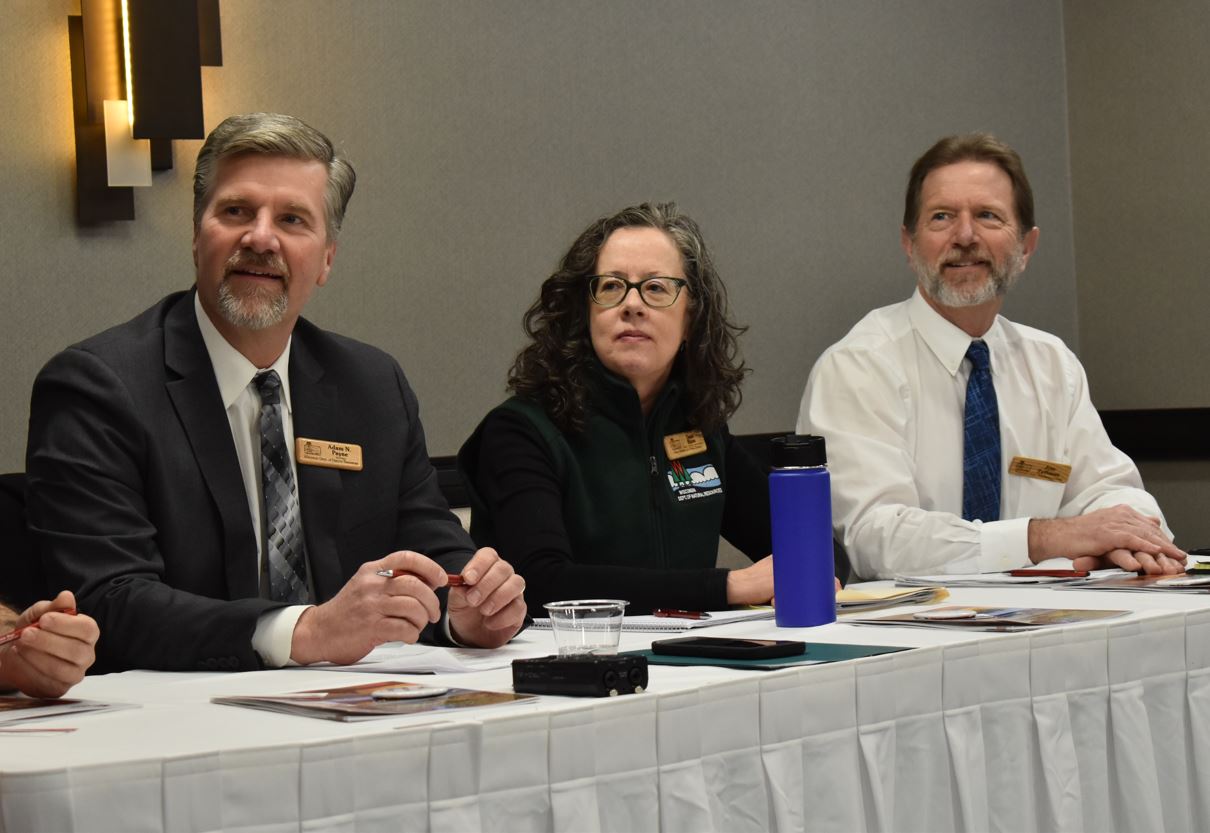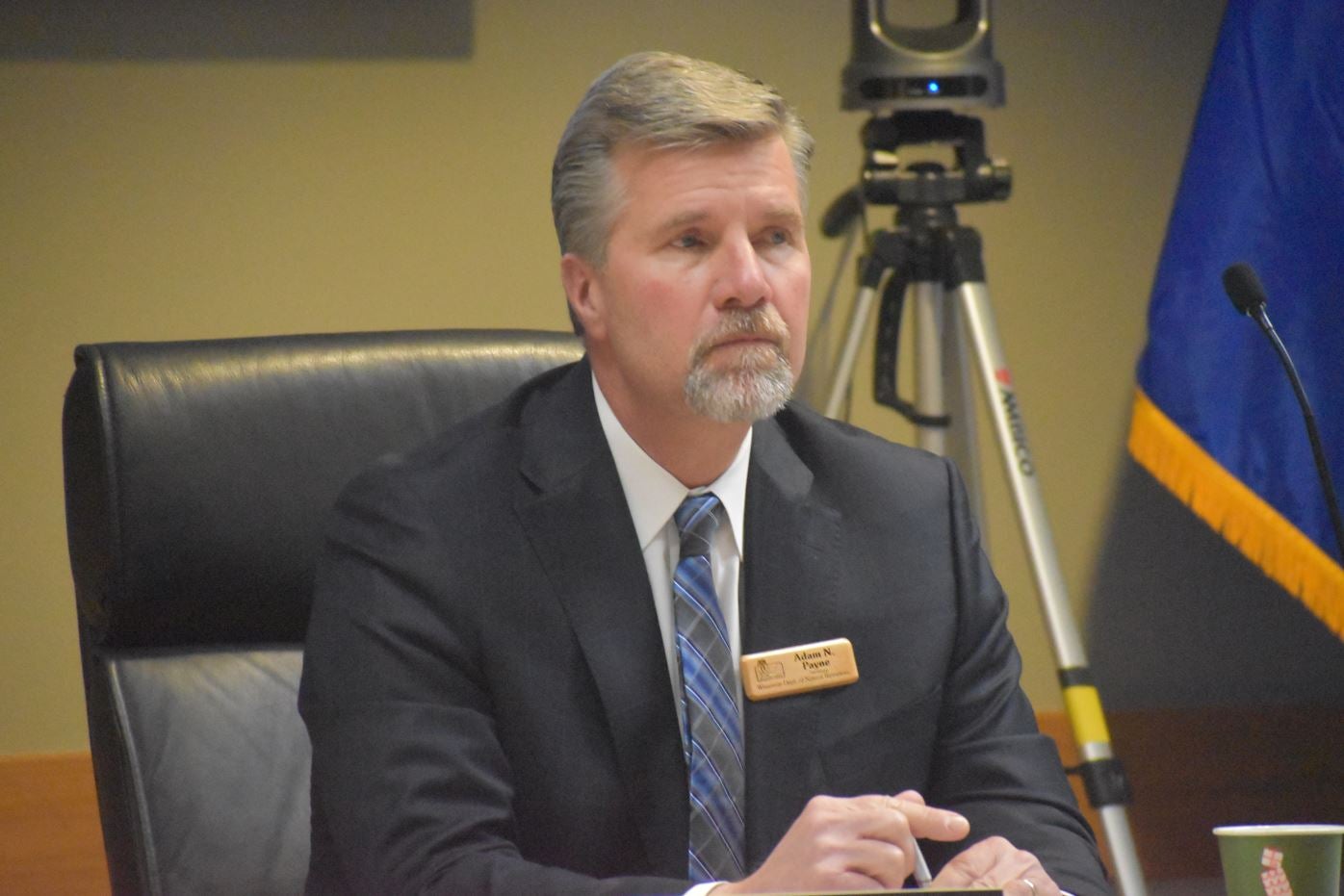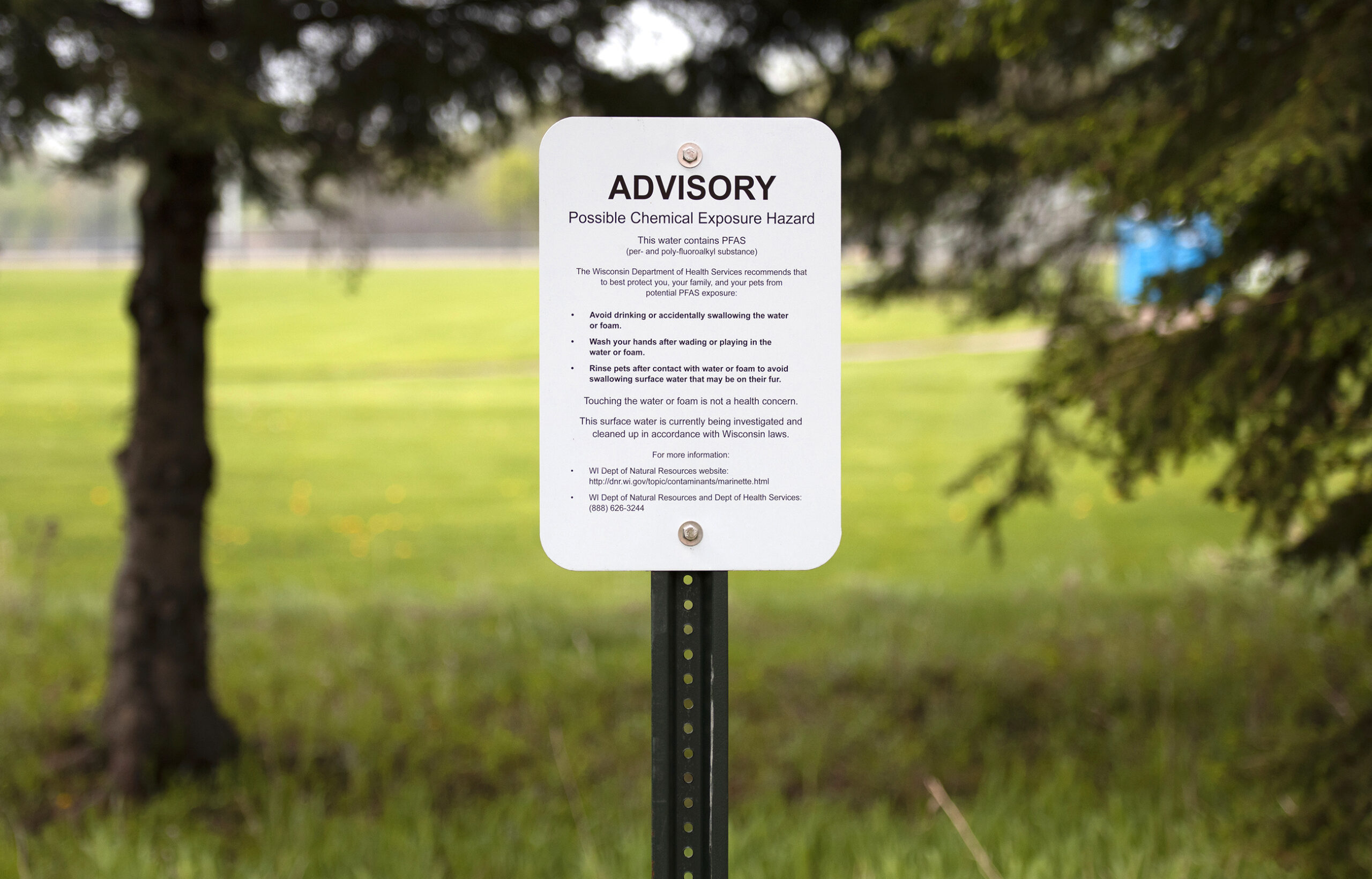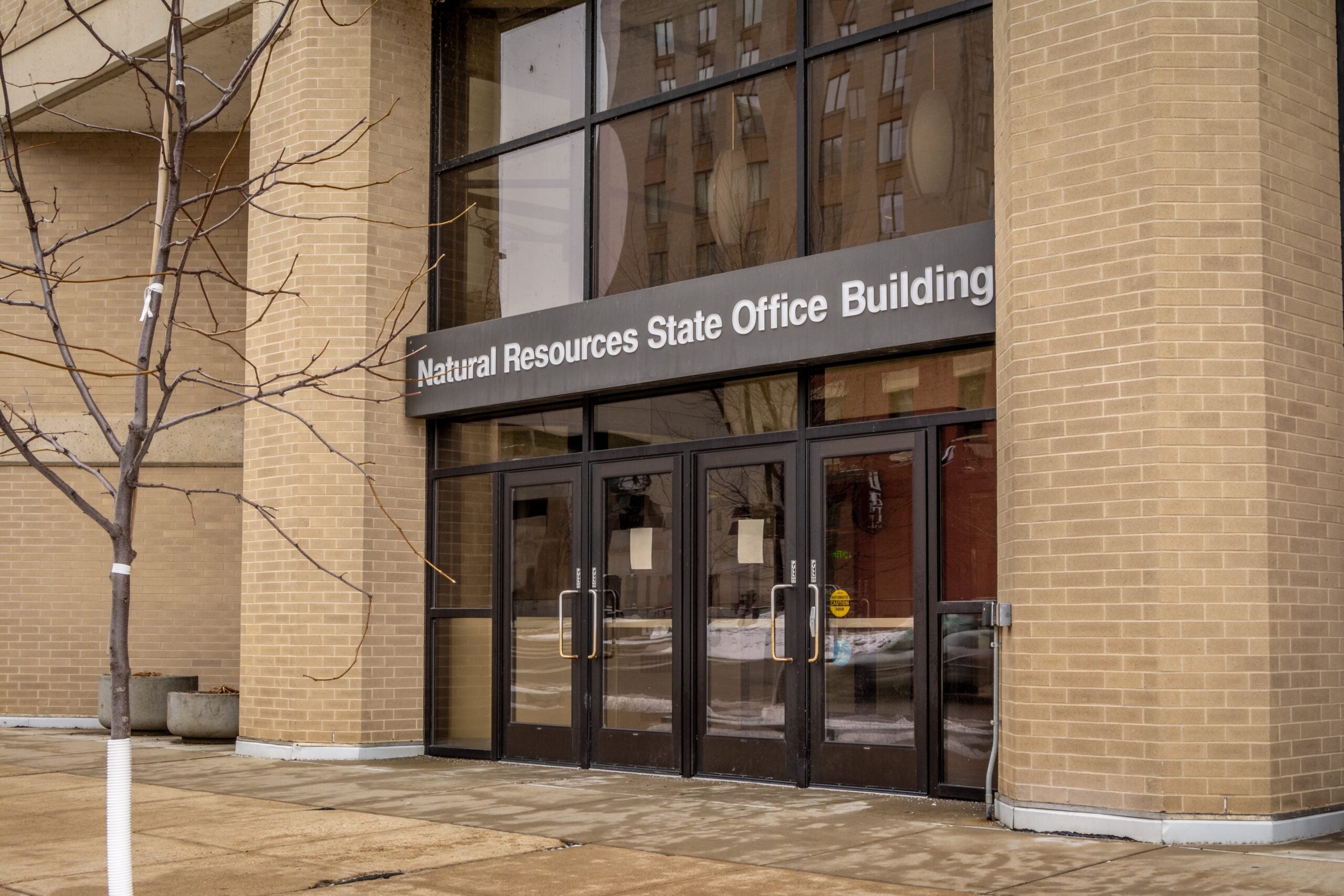The head of the agency that oversees environmental regulations and natural resources in Wisconsin is resigning after serving less than a year.
Adam Payne, Secretary-designee for the Wisconsin Department of Natural Resources, said in a letter that he will step down on Nov. 1.
“This is bittersweet, but the past year really helped put into better focus what is most important to me. After a very fulfilling career in public service, 24 years at Sheboygan County alone, I need to spend more quality time with my aging parents and support my wife’s role as caretaker,” Payne said in the letter. “I also want to spend more time with our four young grandchildren and focus more attention on my personal health and well-being.”
News with a little more humanity
WPR’s “Wisconsin Today” newsletter keeps you connected to the state you love without feeling overwhelmed. No paywall. No agenda. No corporate filter.
Gov. Tony Evers appointed Payne, a former Sheboygan County administrator, in December after former DNR Secretary Preston Cole announced his retirement.
“The governor will be working expeditiously to find a replacement,” said Britt Cudaback, the governor’s communications director.
Since assuming the role, Payne has said water quality is Wisconsin’s most pressing environmental concern. He previously told WPR that the state had to be more aggressive in providing clean drinking water to residents affected by PFAS contamination. The current two-year state budget included $125 million to deal with the chemicals. But, a Republican proposal for spending it has drawn opposition from both business and environmental groups.
In his letter, Payne said he was pleased to advocate for the governor’s priorities on water quality, parks, staffing and providing more support for local government.
“I was particularly grateful the budget provided additional resources that will help us respond more effectively to water pollution, including PFAS, nitrates, phosphorus, and lead, and for the $125 million put into a trust fund to help people and communities in need combat PFAS,” Payne wrote.

The agency leader waded into contentious issues with Republican lawmakers. That included the state’s largest conservation effort in state history with the Pelican River Forest.
Lawmakers criticized the agency for not doing a better job consulting with local governments about the project before the Natural Resources Board approved $4 million in funding through the Knowles-Nelson Stewardship Program. Payne said the agency should provide more notice to local governments, but GOP legislators on the state’s powerful Joint Committee on Finance ultimately killed funding for the project.
The DNR has also been at odds with Republican lawmakers over the agency’s approach to wolf management. The DNR nixed a population goal for the animal as part of its updated wolf management plan. That prompted lawmakers to propose a bill that would force wildlife regulators to set a statewide population goal.
The agency argues its plan would provide more flexibility in managing wolves, and it’s set to take up the plan at Wednesday’s meeting of the Natural Resources Board.
The vast majority of the board is now comprised of new members after the Republican-controlled Senate fired four of Evers’ appointees to the board last week.
Payne had not yet been confirmed by the Republican-controlled Senate. Around 180 Evers’ appointees were still awaiting a vote on their confirmation at the beginning of the year.
During his time with Sheboygan County, Payne oversaw development of county budgets each year, as well as other programs and policy changes. Among them, he guided the county through the cleanup of the Sheboygan River and harbor, as well as a project to preserve 328 acres of undeveloped Lake Michigan shoreline at Amsterdam Dunes.
Earlier in his career, Payne also led the Wisconsin Land and Water Conservation Association as its executive director. He also spent five years working with the Wisconsin Department of Agriculture, Trade and Consumer Protection from 1990 to 1995. Payne headed the Farmland Preservation Program as its director during that time.
Payne received bachelor’s and master’s degrees from the University of Wisconsin-Madison in communications and urban and regional planning.
Wisconsin Public Radio, © Copyright 2025, Board of Regents of the University of Wisconsin System and Wisconsin Educational Communications Board.







